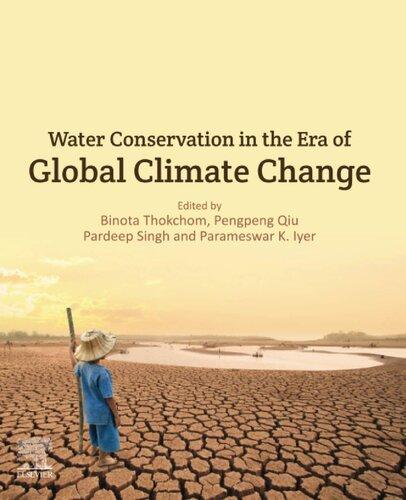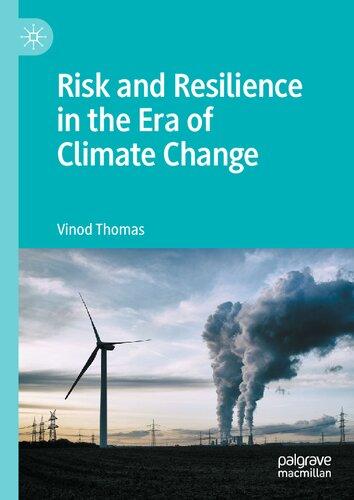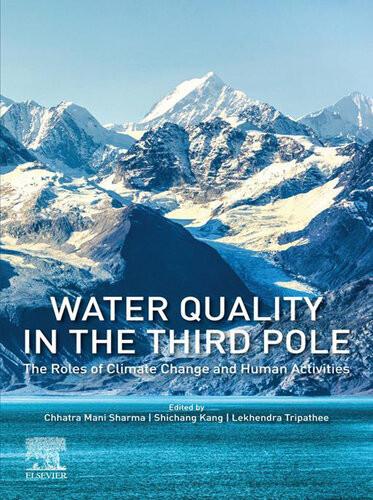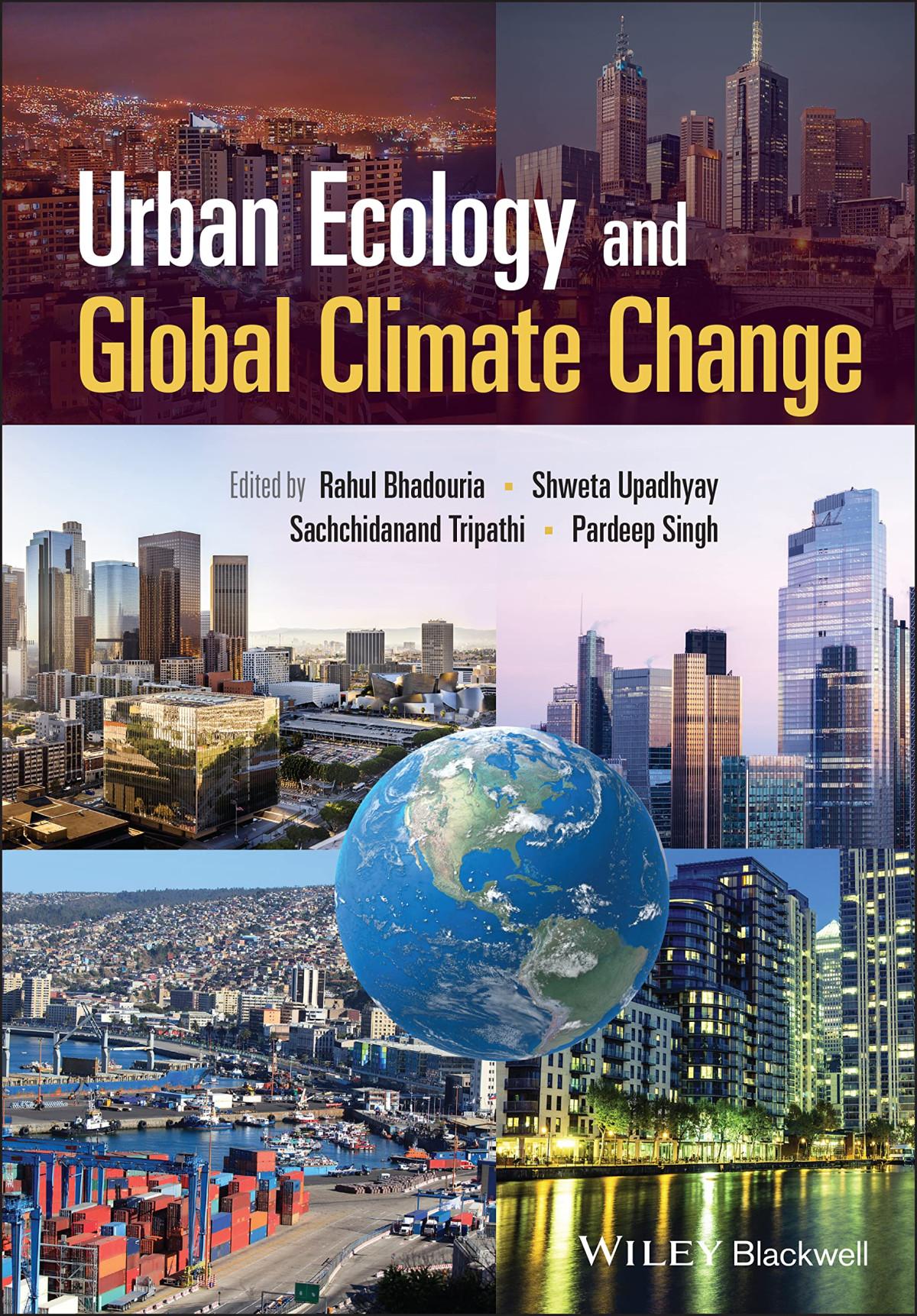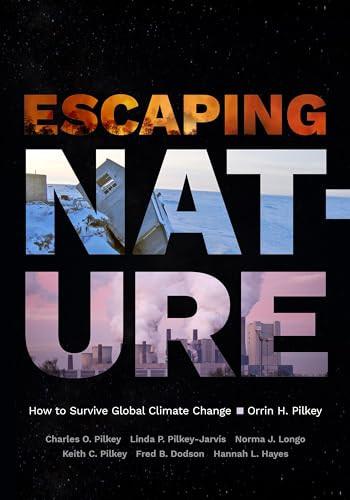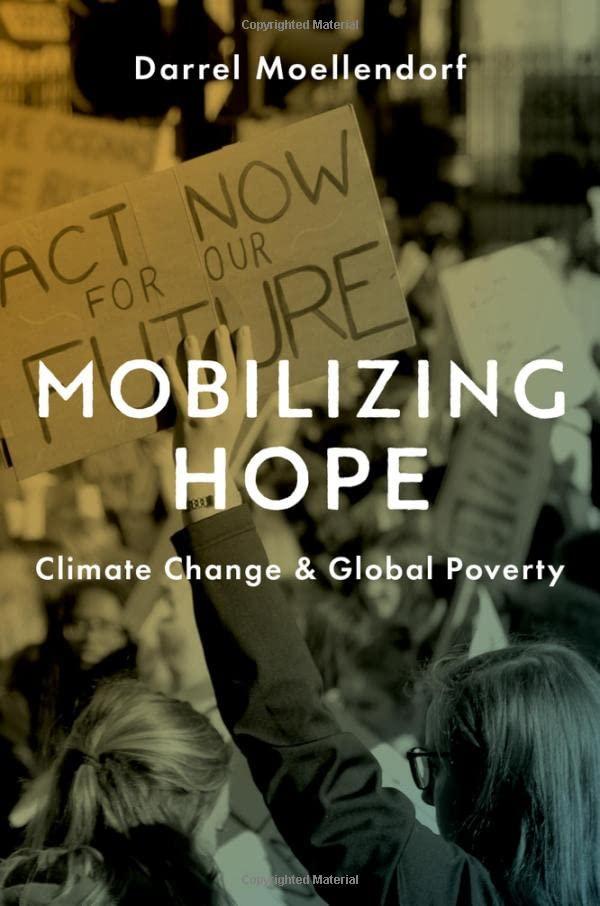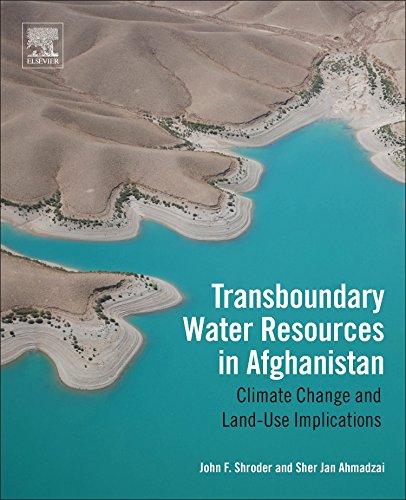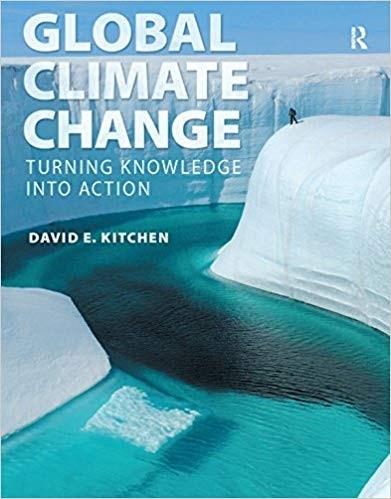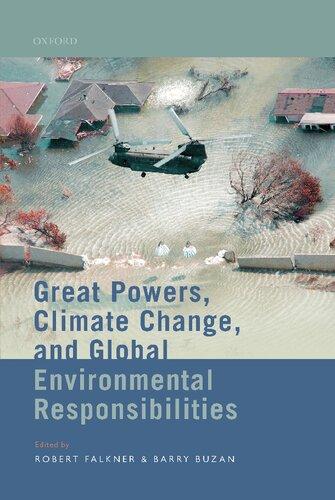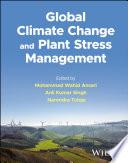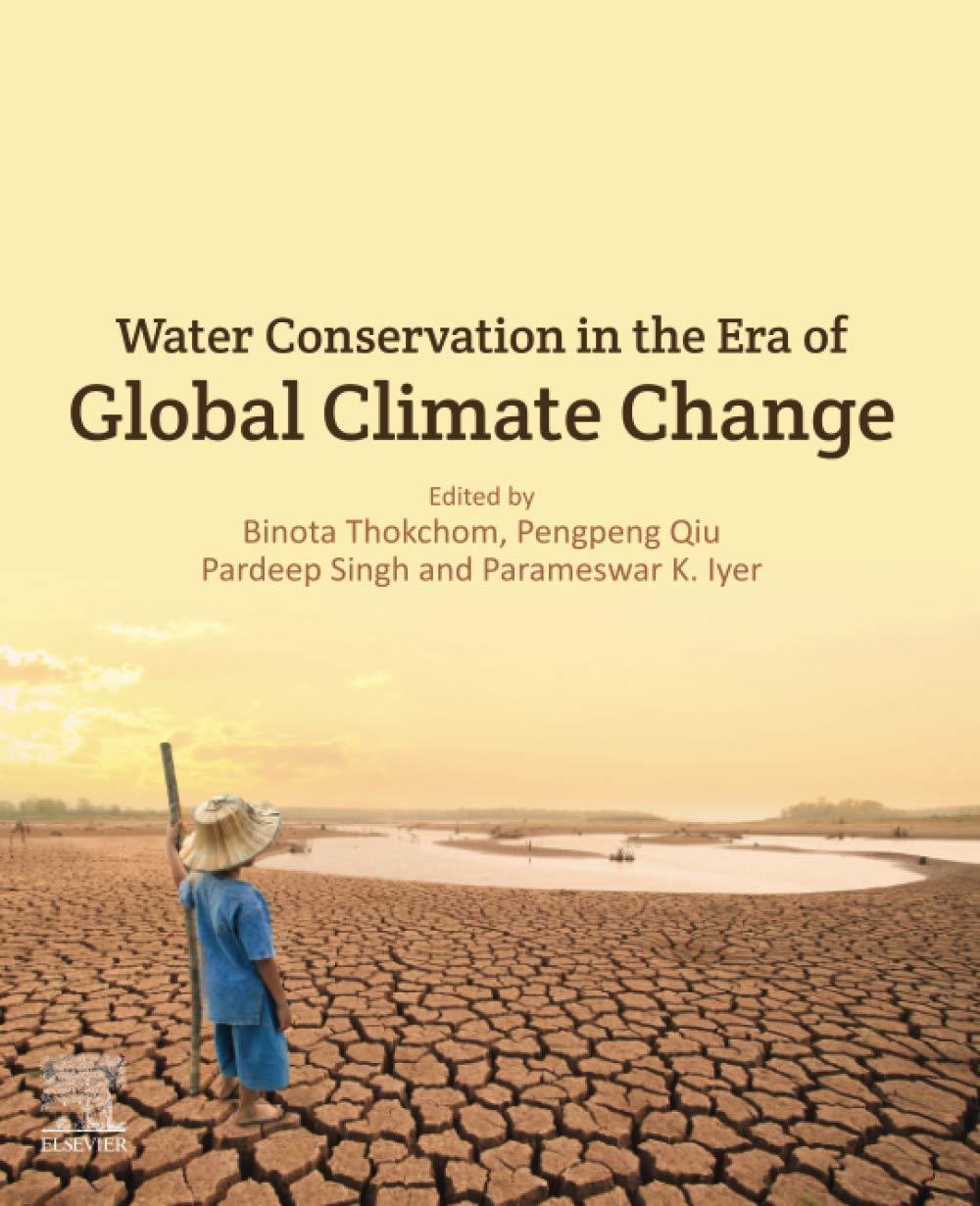WaterConservationintheEra ofGlobalClimateChange
Editedby BinotaThokchom
CentreforNanotechnology,IndianInstituteofTechnology, Guwahati,India;DepartmentofForestryandEnvironmentalScience, ManipurUniversity,Imphal,India
PengpengQiu
StateKeyLaboratoryforModificationofChemicalFibersandPolymer Materials,CollegeofMaterialsScienceandEngineering, DonghuaUniversity,Shanghai,P.R.China
PardeepSingh
DepartmentofEnvironmentalStudies,PGDAVCollege, UniversityofDelhi,NewDelhi,India
ParameswarK.Iyer
DepartmentofChemistryandCentreforNanotechnology, IndianInstituteofTechnologyGuwahati,Guwahati,India
Elsevier
Radarweg29,POBox211,1000AEAmsterdam,Netherlands
TheBoulevard,LangfordLane,Kidlington,OxfordOX51GB,UnitedKingdom 50HampshireStreet,5thFloor,Cambridge,MA02139,UnitedStates
Copyright©2021ElsevierInc.Allrightsreserved.
Nopartofthispublicationmaybereproducedortransmittedinanyformorbyanymeans,electronicormechanical, includingphotocopying,recording,oranyinformationstorageandretrievalsystem,withoutpermissioninwritingfromthe publisher.Detailsonhowtoseekpermission,furtherinformationaboutthePublisher’spermissionspoliciesandour arrangementswithorganizationssuchastheCopyrightClearanceCenterandtheCopyrightLicensingAgency,canbefound atourwebsite: www.elsevier.com/permissions
ThisbookandtheindividualcontributionscontainedinitareprotectedundercopyrightbythePublisher(otherthanasmay benotedherein).
Notices
Knowledgeandbestpracticeinthisfieldareconstantlychanging.Asnewresearchandexperiencebroadenour understanding,changesinresearchmethods,professionalpractices,ormedicaltreatmentmaybecomenecessary.
Practitionersandresearchersmustalwaysrelyontheirownexperienceandknowledgeinevaluatingandusingany information,methods,compounds,orexperimentsdescribedherein.Inusingsuchinformationormethodstheyshouldbe mindfuloftheirownsafetyandthesafetyofothers,includingpartiesforwhomtheyhaveaprofessionalresponsibility.
Tothefullestextentofthelaw,neitherthePublishernortheauthors,contributors,oreditors,assumeanyliabilityforany injuryand/ordamagetopersonsorpropertyasamatterofproductsliability,negligenceorotherwise,orfromanyuseor operationofanymethods,products,instructions,orideascontainedinthematerialherein.
BritishLibraryCataloguing-in-PublicationData
AcataloguerecordforthisbookisavailablefromtheBritishLibrary LibraryofCongressCataloging-in-PublicationData
AcatalogrecordforthisbookisavailablefromtheLibraryofCongress ISBN:978-0-12-820200-5
ForInformationonallElsevierpublications visitourwebsiteat https://www.elsevier.com/books-and-journals
Publisher: CandiceJanco
AcquisitionsEditor: LouisaMunro
EditorialProjectManager: AliceGrant
ProductionProjectManager: KumarAnbazhagan
CoverDesigner: ChristianJ.Bilbow
TypesetbyMPSLimited,Chennai,India
PriyanshuGupta,JanhaviSingh,SunitaVerma,AmitSinghChandel andRajeevBhatla 1.1Introduction
1.2.1Precursorsofclimatechange
1.3.2Precursorsandadverseeffectsofwaterqualitydegradation
1.3.3Currentstatusofglobalwaterqualitydegradation
1.5.1Impactofclimatechangeonagriculture
Chapter2:Groundwaterextractionsandclimatechange
RahulSharma,RaviKumar,PinkiRaniAgrawal,Ittishree, ChankitandGauravGupta
2.1Introduction
2.2Groundwatersources:globaldistribution,quality,anduses
2.3Impactofurbanizationandindustrializationongroundwatersources
2.4Groundwaterextractionsandclimatechange
2.5Managementofgroundwatersources
2.6Concludingremarks:majorchallengesandfutureprospects
3.1Introduction
3.2Impactsofclimatechangeonwaterresource
3.2.1Impactsofclimatechangeonwaterresourcesindevelopingand
3.4Impactsofclimatechangeonurbanwater-supplymanagement
3.4.1Reducedwateravailability
3.4.2Waterqualitydeterioration
3.4.3Increasedrunoff
3.4.4Increasedsalinization
3.4.5Otherissues
3.5Mitigatingtheimpactsofclimatechangeonurban
3.5.1Mitigatingreducedwateravailability
3.5.2Mitigatingdeteriorationinwaterquality
3.5.3Mitigatingsalinization
3.5.4Applicationofvariousapproachestodealwith
3.5.5Improvementinadministration/managementofwaterresources
3.6Climatechangeadaptationsincaseofurbanwatersupplyindeveloping
3.7Conclusions
Chapter4:Impactofclimatechangeonfreshwaterecosystem ................................73
GurudattaSingh,AnubhutiSingh,PriyankaSingh andVirendraKumarMishra
4.1Introduction .........................................................................................................73
4.1.1Waterandfreshwater ................................................................................74
4.1.2Typesoffreshwaterhabitats
4.1.3Distributionoffreshwater
4.2Influenceofclimatechangeonwaterresource
4.2.1Causeofclimatechange
4.2.2Climatechangeandtheglobalhydrologicalcycle
4.3Casestudiesofclimatechangeimpactonriverwater/riverbasin ........................80
4.3.1Casestudy1:impactofclimatechangeonGanga,Hooghly, Meghna,Mahanadi,andBrahmaputraRiverflowinginIndia andBangladesh .........................................................................................81
4.3.2Casestudy2:amplifiedfloodhazardinIndiansubcontinent duetothewarmingclimate .......................................................................82
4.4Physicochemicalinfluenceofchangingclimateonfreshwaterresource
4.4.1Physicalimpacts .......................................................................................84
4.4.2Chemicalimpactofclimatechangeonfreshwaterresource
4.5Climatechangetrendsandfutureimpactsonfreshwater
AadityaChaturvedi,BhanuPandey,AneetKumarYadav andShubhamSaroj
5.1Introduction
5.3Componentsofclimatechange
5.3.1Earth’sorbitalchange
5.3.2Volcanicactivity
5.3.3Greenhousegasemissions
5.4Majoreffectsofclimatechange .........................................................................103
5.4.1Precipitationpattern ................................................................................103
5.4.2Waterquality
5.4.3Eutrophication
5.5Effectofclimatechangeondifferentwaterbodies
5.5.1Rivers
5.5.2Costallagoonsandestuaries
5.5.3Seas
5.5.4Groundwater
5.5.5Surfacewater
5.5.6Surfaceandsubsurfacehydrologicalinteractions
5.5.7Soilmoistureandvadosezone
5.5.8Aquiferrecharge
5.6Climatechangemitigation
AdityaAbhaSinghandArvindK.Singh
6.1Introduction
6.4.1Floodmanagementandclimatechange
6.5.1Waterscarcityandfoodsecurity
6.5.2Waterqualityandgroundwatercontamination
6.5.3Precipitationvariability
6.5.4Lossofaquaticecosystemandbiodiversity
6.6Challengesandprospectsofsustainabledevelopment........................................137
6.6.1Resourceplanningandstrategy
6.6.2Resourceassessmentandefficiencyelevation
6.6.3Pollutionandqualitycontrol
6.6.4Climatechangeandenvironmentaldegradation
6.6.5Legislationsupportingwaterresources
6.6.6Research,education,andtraining
6.6.7Publicparticipation,capacitybuildingand
6.7Conclusion-lookingahead
Chapter7:Recentadvancesinnanotechnologyforaccomplishing
SwatiChaudhary,NiloySarkarandMahimaKaushik
7.1Introduction
7.2Agriculturalproblems
7.2.1Plantpathogens
7.2.2Plantpests
7.3Nanotechnology-basedmanagementofplantdiseases
7.3.1Detectionofplantdiseases
7.4Retentionofsoilmoisture
7.5Conclusionsandfuturedirections
Chapter8:Water,arsenic,andclimatechange
BindiyaAribam,WazirAlamandBinotaThokchom 8.1Introduction
8.3.1Acuteandsubacutetoxicity
8.3.2Chronictoxicity
8.4Speciationandmobility
8.4.1Arsenicmethylation
8.4.2EffectofEh
8.4.3Adsorptiononoxyhydroxidesandarsenicmobility
8.6Climatechange,groundwater,andarseniccontamination
8.6.1Impactofclimatechangeongroundwaterarseniccontamination
8.6.2Impactofseasonalvariation
8.7Conclusion
Chapter9:Anoverviewofnanotechnologyinwatertreatmentapplications andcombatingclimatechange
KshPriyalakshmiDeviandHarshChaturvedi
9.1Introduction
9.2Roleofnanotechnologyinwatertreatment
9.2.1Nanoadsorption
9.2.2Membranesandmembraneprocesses......................................................199
9.2.3Photocatalysis
9.3Roleofnanotechnologytocombatclimatechange
9.3.1Lightweightnanocompositematerials
9.3.2Nanocoatings
9.3.3Nanocatalysts
9.3.4Nanostructuredmaterials
9.3.5Improvedrenewables
9.3.6Batteries
9.3.7Nanotechsensors
9.3.8HarvestingCO2
RehabA.Rayan,MoharanaChoudhury,MitrajitDeb, ArghyaChakravorty,RinkuMoniDeviandJyotiMehta
10.8.1Surveillance
10.8.4Communityengagement......................................................................225
10.8.5Policiesandregulations.......................................................................225
10.8.6Accessiblecare
10.8.7Researchanddevelopment
Chapter11:Impactsofglobalclimatechangeonwaterquality anditsassessment
KeishamRadhapyari,SuparnaDatta,SnigdhaDuttaandRinkumoniBarman
11.3Factorsofglobalclimatechangeaffectingwaterquality
11.3.1Impactsofincreasedglobaltemperatureandprecipitation
11.3.2Impactsofdroughtsandincreasedtemperatureonwaterquality ........240
11.3.3Impactsoffloodandheavyprecipitationonwaterquality
11.3.4Impactsofsuperstormandhighwindsonwaterqualityof coastalsurfacewaterandestuaries ......................................................243
11.3.5Impactsofextremeheatandcoldonwaterquality
11.3.6Impactsofwildfireandheavyprecipitationonwaterquality ..............245
11.3.7Globalclimatechangeandgroundwaterquality ..................................246
11.4Modelingtechniquesforassessingtheimpactsofglobalclimate changeonwaterquality ...................................................................................256
11.4.1Assessmentofstreamflowimpactsonriver/lakebasin andapplicationofwatershedmodelingapproach ................................256
11.4.2Assessmentofimpactoflandusechangeonwaterquality .................258
11.4.3Assessmentofclimateextremeondisinfectionbyproduct formationbylaboratorysimulationmethod.........................................259
Chapter12:Nanomaterialsforclimatechangeandwaterpollutionmitigation.......277 DebikaDeviThongamandHarshChaturvedi
12.1Introduction
12.2.1Carbondioxide ....................................................................................282
12.2.2Majorwaterpollutants ........................................................................285
12.3Nanomaterials ..................................................................................................286
12.4Nanomaterialsinclimatechange .....................................................................288
12.4.1CO2 capturing .....................................................................................290
12.4.2ElectrocatalyticreductionofCO2........................................................291
12.4.3PhotocatalyticreductionofCO2 ..........................................................294
12.4.4PhotoelectrocatalyticreductionofCO2 ...............................................296
12.5Nanomaterialsinwaterpollution .....................................................................300
12.5.1Electrocatalyticwastewatertreatment .................................................302
12.5.2Photocatalysisofwastewatertreatment ...............................................305
12.5.3Photoelectrocatalysismethod ..............................................................307
Chapter13:Biotechnologicalinterventioninglobalwarming:climate changeandwatercrisis ...................................................................315
SamurailatpamSanjukta,MadhusmitaMahapatraandSangeetaSharma
13.1Introduction .....................................................................................................315 13.2Effectsofhumaninterventioninenvironment .................................................316
13.3.1Anoverviewonclimatechangeandchangeinrainfallpattern
13.4Biotechnologicalinterventionincombatingclimatechangeand watercrisis .......................................................................................................319
13.4.1Roleofagriculturalbiotechnologicallyincontrollingclimate changeandwatercrisis .......................................................................319
13.4.2Applicationofindustrialbiotechnologyincontrollingclimate changeandwatercrisis .......................................................................320
13.4.3Applicationofmycobiotechnologyinpreventingclimate changeandwatercrisis .......................................................................323
13.4.4Nanotechnologyincombatingclimatechangeandwatercrisis
JyotiKushawaha,SivaiahBorra,AbhishekKumarKushawaha, GurudattaSinghandPardeepSingh 14.1Introduction
14.2.1Distributionofwater
14.2.2Climaticconditionsandwaterscarcity
14.5.1Impactofclimatechangeonfreshwater
Chapter15:TheInfluenceofglobalclimatechangeonfreshwaterecosystem
RaziaKhanandVipulPatel
15.2.1Increaseinatmosphericcarbondioxide
15.2.3SolarandUVradiation
15.2.4Precipitationanddrought
15.3Climate,environmentaldrivers,andaquaticecosystems
15.4.1Effectofclimatechangeonlakes
15.4.3Effectofclimatechangeonwetlands
15.5Monitoringtheresponsesoffreshwaterecosystemstoclimatechange
15.5.1Speciesdistributionmodelstoassessclimatechangeimpacts
15.5.2Modelsfortheassessmentofinvasivespeciesdistribution
15.6Interactionofclimatechangeandeutrophicationandaciddeposition
15.7Distributionofpersistentorganicpollutantsandmercuryinfreshwater ecosystemsunderchangingclimaticconditions ...............................................358
15.8Toolsforbetterdecision-making:linkingsciencetopolicy
15.9Conclusion
Chapter16:Theimpactofwastewatertreatmentplantsonglobal climatechange
Joa˜oPauloBassin,FrancineDuarteCastro,RenatoRochaVale´rio, ErimarPontesSantiago,FernandaRibeiroLemosandIsabelliDiasBassin
16.1Theroleofthewastewatertreatmentonenvironmentalpreservation ...............367
16.2Wastewatertreatmentplants:howdotheyworkandwhataretheprinciples behindtheiroperation? ....................................................................................370
16.2.1Preliminarytreatment
16.2.4Tertiarytreatment ...............................................................................374
16.2.5Sludgetreatment .................................................................................374
16.3Wastewatertreatmentandclimatechange
16.3.1Thecarboncycle
16.3.2Thenitrogencycle
16.3.3Emissionfactors
16.3.4Overallemissions
16.4Strategiestocontroltheadverseeffectofwastewatertreatment plantsonclimatechange ..................................................................................387
16.5Effectofclimatechangeonwastewatertreatmentplants .................................398
16.5.1Effectofrisingglobaltemperature ......................................................399
16.5.2Effectofchangesinprecipitationpatternsandintensities
16.6Concludingremarks
AnuSharmaandMoharanaChoudhury
17.1Introduction....................................................................................................411
17.2SomeoftheglaciersintheHimalayanregion ................................................414
17.3Discussioninreferencewithcasestudy .........................................................414
17.4Bhaderwah:acasestudyfromtheHimalayas ................................................415
17.5Topographyandclimate .................................................................................416
17.7Sourcesofwaterinthearea ...........................................................................419
17.8PhotographsshowingthecollectionfromtheNeerustream followedbyfiltrationplant ............................................................................419
17.9Photographsoffiltrationplantanddifferentreservoirsfromthe studyarea .......................................................................................................422
17.10Conservationstrategies ..................................................................................425
17.11Adaptation:abuzzword
Listofcontributors
PinkiRaniAgrawal CSIR-NationalPhysicalLaboratory,NewDelhi,India;Academyof ScientificandinnovativeResearch(AcSIR),Ghaziabad,India
WazirAlam DepartmentofForestryandEnvironmentalScience,ManipurUniversity,Imphal, India
BindiyaAribam DepartmentofForestryandEnvironmentalScience,ManipurUniversity,Imphal, India
RinkumoniBarman RegionalChemicalLaboratory,CentralGroundWaterBoard,NorthEastern Region,DepartmentofWaterResources,RiverDevelopmentandGangaRejuvenation,Ministryof JalShakti,Guwahati,India
IsabelliDiasBassin DepartmentofBiochemicalEngineering,SchoolofChemistry,Federal UniversityofRiodeJaneiro,RiodeJaneiro,Brazil
Joa ˜ oPauloBassin ChemicalEngineeringProgram,COPPE,FederalUniversityofRiodeJaneiro, RiodeJaneiro,Brazil
RajeevBhatla DepartmentofGeophysics,InstituteofScience,BanarasHinduUniversity, Varanasi,India
SivaiahBorra IndianNationalCentreforOceanInformationServices(INCOIS),Hyderabad,India
FrancineDuarteCastro DepartmentofCivil,Environmental,ArchitecturalEngineeringand Mathematics,UniversityofBrescia,Brescia,Italy
ArghyaChakravorty SchoolofBioSciences&Technology,VelloreInstituteofTechnology, Vellore,India
AmitSinghChandel CenterofEnvironmentalSciences,UniversityofAllahabad,Prayagraj,India
Chankit DeenbandhuChhotuRamUniversityofScienceandTechnology,Murthal,India
AadityaChaturvedi IndianInstituteofTechnology(IndianSchoolofMines)Dhanbad,Dhanbad, India
HarshChaturvedi CentreforEnergy,IndianInstituteofTechnologyGuwahati,Guwahati,India
SwatiChaudhary DepartmentofAppliedScience,MSIT,GGSIPUniversity,NewDelhi,India
MoharanaChoudhury VoiceofEnvironment(VoE),Guwahati,India
SuparnaDatta RegionalChemicalLaboratory,CentralGroundWaterBoard,EasternRegion, DepartmentofWaterResources,RiverDevelopmentandGangaRejuvenation,MinistryofJal Shakti,Kolkata,India
MitrajitDeb DepartmentofZoology,TheAssamRoyalGlobalUniversity,Guwahati,India
KshPriyalakshmiDevi CentreforEnergy,IndianInstituteofTechnologyGuwahati,Guwahati, India
Another random document with no related content on Scribd:
Christian Fletcher [posterity will desire the preservation of her whole name], entered heartily into the wishes of the countess.157 Mrs Grainger, by permission of the English commander, visiting the wife of the governor of the castle, received from that lady, but without the knowledge of her husband, the crown into her lap. The sceptre and sword, wrapped up in a bundle of hardsor lint, were placed on the back of a female attendant. When Mrs Grainger and her maid returned through the beleaguering camp, it appeared as if she were taking away some lint to be spun for Mrs Ogilvie. So far from suspecting any trick, the English officer on duty is said to have helped Mrs Grainger upon her horse. The castle was rendered three months afterwards, when great was the rage of the English on finding that the regalia were gone. It was adroitly given out that they had been carried beyond sea by Sir John Keith, a younger brother of the earl, and handed to King Charles at Paris.
In reality, on reaching the manse of Kineff, Mrs Grainger had delivered the crown, sceptre, and sword to her husband, who took the earliest opportunity of burying them under the floor of his church, imparting the secret of their concealment to no one but the Countess Marischal. To the credit of the worthy minister and his wife, they preserved their secret inviolate till the Restoration, eight years afterwards, when ‘the honours’ were exhumed, and replaced under proper custody. An order of the Scottish parliament, dated January 11, 1661, rewarded Mrs Grainger with two thousand merks; Ogilvie was created a baronet; while Sir John Keith, whose immediate concern in the affair does not appear to have been great, was made Knight Marischal of Scotland, with a salary of £400 yearly; to which rewards was added in 1677 a peerage under the title of Earl of Kintore.158
1652.
‘In these times, the English commanders had great respect to justice, and in doing execution upon malefactors, such as thieves, harlots, and others of that kind, by scourging, hanging, kicking, cutting off their ears, and stigmating of them with het irons.’—Nic.
The diarist acknowledges that the English judicature established at Leith condemnedthe native one by its impartiality, suitors returning from it ‘with great contentment.’ He adds: ‘To speak the truth, the English were more indulgent and merciful to the Scots nor the Scots were their awn countrymen and neighbours. They filled up the rooms of justice-courts with very honest clerks,’ &c.
MAR. 29.
Being Monday, a celebrated eclipse of the sun took place between eight and eleven in the morning, with a perfectly clear sky. ‘The whole body of the sun did appear to us as if it had been covered with the moon; only there was a circle about the sun that appeared somewhat clear without any light [the corona?]. At that time there did a star appear in the firmament, near to the place of the eclipse.’ ‘There was ane manifest darkness for the space of some moments.’—Lam.‘The time of the eclipse it was exceedingly fearful and dark, to the terror of many.’—Nic. Another account says, the darkness continued about eight minutes, and the people began to pray to God.159 ‘The like, as thought by astrologers, was not since the darkness at our Lord’s passion. The country people, tilling, loosed their ploughs, and thought it had been the latter day.... The birds clapped to the ground.’—Law. The day of this eclipse was long remembered, under the name of MIRK MONONDAY.
Died at the Wemyss in Fife, Eleanour Fleming, Countess of Wemyss, without children. She had
APR. 20.
been married to her husband only two years, but in that time had made him, if report spoke true, ‘a hundred thousand merk worse’ than before. ‘She caused her husband give a free discharge to her brother, the Lord Fleming, of her whole tocher, being about twenty thousand merks Scots, before any of it was paid to him. She caused her husband and her brother to give Mr Patrick Gillespie a bond of four thousand merks.... She caused also a door to be strucken through the wall of her chamber, for to go to the wine-cellar; for she had, as is said by many, a great desire after strong drink.’—Lam.Verily, a trying sort of lady for a quiet nobleman like Lord Wemyss, who nevertheless ventured on a third wife before the year was out—the mother of Anne Duchess of Monmouth.
1652. JUNE 17.
‘It pleased God to lay the town of Glasgow desolate by a violent and sudden fire.... The far best part of the fore streets and most considerable buildings were burnt, together with above fourscore lanes and closes, which were the dwellings of above a thousand families, and almost all the shops and warehouses of the merchants, many whereof are near by ruined. Besides, a great many more of widows, orphans, and distressed honest families, having lost what they had, are now put to starving and begging. The like of this fire has not been formerly heard of in this nation.’—Nic.‘It was said 1060 houses burnt.’—C.P.H.
Five days after this fire, the Town Council appointed ‘the provost, with John Bell, to ride to Ayr, to the English officers there, wha has been here and seen the town’s lamentable condition—such as Colonel Overton and others—and to obtein from them letters of recommendation to such officers or judges who sits in Edinburgh, to the effect that the same may be recommendit by them to the parliament of England, that all help and supply may be gotten
thereby that may be, for the supply of such as has their lands and guids burnt.’160
It must have been with a sore heart that the newly subjugated city of the west condescended to beg from the parliament of the sectaries. The case, however, was one of extreme misery, for the resources of Scotland, and of the west as much as anywhere, had been exhausted by the war, so that without foreign help it must have been impossible to repair the calamity.
Little more than four years after this period, Robert Baillie speaks of Glasgow as much revived. ‘Our people,’ he says, ‘has much more trade in comparison than any other: their buildings increase strangely both for number and fairness.’ He adds, that in his time the city had been more than doubled.
In a General Assembly which sat at Edinburgh, sixty-five of the clergy protested against the lawfulness of the last General Assemblies, in which resolutions in favour of the king had been sanctioned. Andrew Cant, Samuel Rutherford, and Robert Traill were the leaders of this zealous faction—the Protesters or Remonstrators against whom the censures of the kirk were threatened by the majority in vain. By this schism, the hitherto admired unity of the Scottish kirk was broken up, and henceforth, for several years, there scarcely ever was a meeting of any of its courts unmarked by scenes of indecent violence. At a synod held at Glasgow in October, two days being spent in contentions about the choice of a moderator, the meeting dissolved without attempting any other business. Nic. Not long after, when the General Assembly ordered a fast for the sins of the nation, and because ‘few were seeking the things of Jesus Christ,’ the Remonstrators disallowed it, and appointed among themselves ‘a day of humiliation for that humiliation.’ In all matters regarding the settlement of ministers in
JULY. 1652.
parishes, there was furious and uncompromising war for a series of years between the two parties.
This summer was remarkable for clear, dry, warm weather, parching up the herbage, and producing exceedingly light crops on the best lands. The harvest commenced in June, and in a field near Dundee there were stooks on the 7th of July. At the end of July and beginning of August, the harvest was general; and before the end of the latter month, all was ‘in’—circumstances unexampled, and which have perhaps never again occurred. ‘The pease wallowed [that is, faded in the bloom] a fortnight before Lammas, whereas some years they continue till Michaelmas.’—Lam.‘All the corn was got in without rain, and long before the usual time. The like harvest was in England.’ ‘It is truly reported that in England there was such abundance of white butterflies as was never heard of before. They destroyed all cabbage; and divers cobles coming from sea, hardly could see the land for them.’—Nic.
The summer ‘produced ripe wine-berries and grapes, and abundance of Scotch chestanes openly sauld at the Mercat Cross of Edinburgh, and baken in pasties at banquets.’—Nic.
The weather, strange to say, remained of the same character all the latter part of the year, so that fruit-trees had a second blossoming in November, and some of them brought forth fruit, ‘albeit not in perfection.’ The furze and broom bloomed again; the violet, not due till March, presented its modest head in November. Birds began to build their nests, and lay eggs, at or near Martinmas, and salads and sybows were cried and sold in Edinburgh on the 27th of November. Nic.
1652.
The letters sent home by the English soldiery now marching through the Highlands, describe the country as mountainous, yet the valleys rich; the houses of earth and turf so low that the horsemen sometimes rode over them; the people generally going with plaids about their middles, both men and women; ‘simple and ignorant in the things of God, and some of them as brutish as heathens;’ nevertheless, ‘some did hear the English preachers with great attention and groaning.’161
In some churches in Fife, as Kirkcaldy and Kennoway, the English soldiers ‘did pull down the stool of repentance; they did sit in them also, in contempt, in some places where they came, in time of sermon.’ Several ministers were openly challenged for their expressions in prayers and sermons, by these soldiers. Mr George Hamilton at Pittenweem was so troubled by some of Fairfax’s regiment, that he had to break off; ‘at which time there was great uproar in the church there.’—Lam.
AUG.
The Earl of Crawford, having been taken by the English at Alyth a twelvemonth before, now lay a prisoner in the Tower. The countess—a sister of the late Duke of Hamilton—desiring to visit her husband in his affliction, left Scotland for the purpose in a stage-coach which had recently been established for the keeping up of communication between the two countries—‘the journey coach,’ says Lamont, ‘that comes ordinarily between England and Scotland.’ We do not learn the periods of departure, or any other detail regarding this vehicle; but from a paragraph which occurs under May 1658, we may presume that it did not go oftener than once in three weeks, and
charged for a seat fully as much as a first-class railway ticket of the present day.
‘There came into the very brig of Leith ane little whale, which rendered much profit to the English.’—Nic.
SEP. 30. 1652.
This ‘little whale’ would probably be a stray member of a flock of the Delphinus globioceps, which so frequently are embayed and slaughtered in Zetland and the Faröe Islands. The appearance of such an animal in Leith harbour is an event of a very rare character.
OCT.
Four English gentlemen, Messrs George Smith, John Martin, Andrew Owen, and Edward Mosley, the commissioners appointed by Cromwell for the administration of justice in Scotland in place of the Court of Session, commenced their labours in the criminal department at Edinburgh. Three days were spent in the trial and fining of persons of impure life, of whom there were above sixty brought before the judges in a day. ‘It is observable,’ says an English newspaper of the time, ‘that such is the malice of these people, that most of them were accused for facts done divers years since, and the chief proof against them was their own confession before the kirk, who are in this worse than the Roman religion, who do not make so ill a use of their auricular confession. Some of the facts were committed five, ten, nay, twenty years. There was one Ephraim Bennet, a gunner in Leith, indicted, convicted, and condemned for coining sixpences, shillings, and halfcrowns. Also two Englishmen, Wilkinson and Newcome, condemned for robbing three men, and for killing a Scottishman near Haddington in March last. But that which is most observable is, that some were
brought before them for witches, two whereof had been brought before the kirk about the time of the armies coming into Scotland, and having confessed, were turned over to the civil magistrate. The court demanding how they came to be proved witches, they declared they were forced to it by the exceeding torture they were put to, which was by tying their thumbs behind them, and then hanging them up by them: two Highlanders whipped them, after which they set lighted candles to the soles of their feet, and between their toes, then burned them by putting lighted candles in their mouths, and then burning them in the head: there were six of them accused in all, four whereof died of the torture.... Another woman that was suspected, according to their thoughts, to be a witch, was twenty-eight days and nights with bread and water, being stripped stark naked, and laid upon a cold stone, with only a haircloth over her. Others had hair-shirts dipped in vinegar put on them, to fetch off the skin.’—MercuriusPoliticus.162 The resolution of the judges to inquire into these cruelties is intimated.
Regarding a man accused of witchcraft, it is mentioned a few days later by the same newspaper, that he first confessed a number of ridiculous things, including frequent converse with the devil, but before the judges he denied all, and said that he hadonly beenina dream. ‘The truth is, he lived in so poor a condition, that he confessed or rather said anything that was put into his head.... By this you may guess upon what grounds many hundreds have heretofore been burnt in this country for witches.’ A most pregnant remark, truly.
1652.
Whitelocke intimates letters from Scotland at this time, stating that sixty persons, men and women, had been accused of witchcraft before the commissioners for the administration of justice in Scotland at the last circuit; but ‘they found so much malice and so little proof against them, that none were condemned.’163
The Scottish civil bench having not long been free from an evil reputation for buddsor bribes, and to the last liable to the charge of
partiality, it is alleged that the English judges rather surprised the public by their equitable decisions. It is added that some one, in a subsequent age, was lauding to the Lord-president Gilmour, the remarkable impartiality of these judges and the general equity of their proceedings, when the Scottish judge answered in his rough way: ‘Deil thank them, they had neither kith nor kin!‘164
1653. FEB. 11.
A person who was ‘both man and woman, a thing not ordinar in this kingdom,’ was hanged at Edinburgh on account of some irregularities of conduct. ‘His custom was always to go in a woman’s habit.’—Lam. This person passed by the name of Margaret Rannie. ‘When opened by certain doctors and apothecaries, [he] was found to be two every way, having two hearts, two livers, two every inward thing....’—C.P . H. The same day, an old man was burnt for warlockry, ‘wha had come in and rendered himself to prison, confessing his sin, and willing that justice be execute on him, for safety of his saul.’—Nic.
Early in this month, a number of pellochs or porpoises were thrown ashore dead on the coast of Fife; ‘whilk was taken to be very ominous.’—Nic.
JUNE. 1653. JULY 20. 1653.
The humiliation of the ecclesiastical system of Scotland, lately so triumphant, was this day completed by the breaking up of the General Assembly at the order of Cromwell. The court had met in Edinburgh, and the moderator, Mr David Dickson, had prayed and begun to call the roll, when ‘there comes in two lieutenant-colonels of the English forces, and desired them to be silent, for they had something to speak to them. So one of the lieutenant-colonels [Cotterell] began to ask them by what authority
they met—if by authority of the late parliament, or by authority of the commander-in-chief, or if by the authority of their late king? [Mr David Dickson, the moderator of the former assembly, ‘said to him: “Sir, you ask by what authority we sit here; we sit, not as having authority from any power on earth, but as having power and authority from Jesus Christ; and by him, and for him, and for the good of his church, do we sit.” Cotterell answered: “You are to sit no more;” whereby he declared himself, and them that employed him, enemies to Christ.’—C.P . H.]... He desired further, that all the names of the members of the assembly might be given him. The moderator replied that they could not give them, because they were not called; but if he would have a little patience till they called the roll, he should have them. He answered, if it were not longsome, he should do it. So the moderator began at the presbytery of Argyle, to examine their commission. Here the English officer replied that that would prove tedious, so that he could not wait upon it, but desired them to remove and begone; and if they would not, he had instructions what to do. [‘He would drag us out of the room.’—Bail.] Upon this the moderator protested, in the name of the assembly, that they were Christ’s court, and that any violence or injury done to them might not hinder any meeting of theirs when convenient occasion should offer itself. He desired they might pray a little before they dissolved. The moderator began prayer; and after he had spoken five or six sentences, the English officer desired them again to be gone. Notwithstanding, the moderator went on in prayer, but was forced at length to break off. So they arose and came forth. [‘When we had entered a protestation of this unexampled violence, we did rise and follow him; he led us through the streets a mile out of town, encompassing us with foot-companies of musketeers and horsemen without; all the people gazing and mourning as at the saddest spectacle they had ever seen.’—Bail.] They were guarded on both hands up the way to the Weigh-house, where they were carried along to the Port, and thence to the Quarry Holes [Bruntsfield Links], where they made them to stand. The English required again all their names; they said they were most willing. So they told all their names. So the moderator protested again at that place. After their
names were written, they discharged them to meet again, under the pain of being breakers of the peace.... The English desired them to go back to Edinburgh and lodge there all night, and be gone before eight o’clock next day; and discharged that not above two of them should be seen together.’—Nic.
‘The day following, by sound of trumpet, we were commanded off the town, under pain of present imprisonment. Thus our General Assembly, the glory and strength of our church, is crushed and trod under foot. Our hearts are sad, our eyes run down with water, we sigh to God against whom we have sinned, and wait for the help of his hand.’—Bail.
The suppression of the supreme church-court was followed (August 4) by a proclamation at Edinburgh, ‘discharging the ministry to pray for the king, or to preach anything against the title of England to Scotland. Mr Robert Lawrie, in his prayer, prayed for the king. When he came from the pulpit, he was carried to the Castle, but stayed short while, because an Englishman would be caution that he should answer whenever he should be called. Notwithstanding, the ministry, finding it a duty lying on them by the Covenants, continued all of them praying for the king, and gave their reasons for it to the English commissioners.’—C.P.H.
(SEP.)
The heat of the summer 1652, and the earliness of the harvest, had not been attended with such plenty as to produce extraordinary cheapness. During this summer of 1653, wheat was £1, 5s. sterling per boll, and the inferior grains about 20s. An excellent crop having been secured, ‘the prices fell strangely, so that from Michaelmas till the end of the year, oats were at [6s. 8d.] per boll, and wheat [11s. 8d. and 13s. 4d.].’—Lam.
The Trembling Exies—that is, ague—was this year ‘exceeding frequent through all parts of this nation, in such condition as was never seen before ... the smallpox also, whereof many people, both old and young, perished.’—Nic.
. 1653.
The gallant resistance made to the English by the loyal forces under Lord Kenmure, in the north of Scotland, was heard of with much interest by Charles II. and his little court at Paris. Amongst other adherents of royalty assembled there, was a Welsh gentleman of about twenty-three years of age, styled Captain Wogan, who, entering in mere boyhood into the service of the parliament under General Ireton, had been converted by the king’s death, and since distinguished himself in the loyal movements made in Ireland under the Marquis of Ormond. Wogan was one of those ardent spirits whom Montrose would have been delighted to associate in his enterprises. He now planned an expedition of a most extraordinary nature. He proposed nothing less than to march, with such as would join him, through the length of England and Lowland Scotland, in order to take part in the guerrilla war going on in the Highlands. Clarendon tells how reluctant the young king was to sanction so mad an undertaking; but at length he was induced to give it his countenance.
Captain Wogan accordingly landed with a few companions at Dover, and, proceeding to London, there went about engaging associates and making needful preparations, without attracting the notice of the republican government. The men and horses being rendezvoused at Barnet, Wogan commenced his march for the north with an armed troop, which passed everywhere as if it were a part of the regular army. By easy journeys, but keeping as much as possible out of common roads, they reached Durham, and thence advanced into Scotland by Peebles. It appears that one of their first
adventures in Scotland was to pass through a fair in open day.165 Monk, hearing on a Sunday of their having been on the preceding night at Peebles, caused parties from Linlithgow, Stirling, and Glasgow to keep a look-out; but the people of the country did not help the English soldiery with intelligence, and this net was spread in vain.166 Wogan succeeded in conducting his troop in perfect safety into the Highlands.
This gallant little party met a cordial reception, and immediately entered with the greatest activity into the war of skirmishes and surprises which was then going on. The chief of the Camerons, the gallant Evan Dhu, hailed in Wogan a kindred spirit, and joined in some of his enterprises.167 No garrison within many miles of the Highland frontier was secure from their inroads. Their united names became a terror to the English. But one winter month of Highland campaigning formed the entire career of Wogan. A lieutenant’s party of the veteran regiment known as the Brazen Wall, left the garrison at Drummond one day, to recover some sheep which had been carried away by the Highlanders. It became enclosed unawares in a superior force of the enemy, of which Wogan and his troop formed part. The Brazen Walls got off with a severe loss; but Wogan had received a wound in the shoulder from a tuck. It was such an affair as a good surgeon and a week of quiet might have healed—the circumstances of the poor youth made it mortal in a few days, to the great grief of all who knew him.168 He was buried with military honours, and amidst the greatest demonstrations of Highland sorrow, in the churchyard of Kenmore169 (about February 1, 1654). ‘Great indignation was there,’ says Heath, ‘against Robinson, the surgeon that dressed him, for his neglect of him, the Earl of Athole having threatened to kill him; so dearly was this hero beloved by that nation.’ The hope of this English author ‘that some grateful muse should sing his achievements,’ has not as yet been realised; but the readers of Waverley will remember how the author represents his
1653.
hero as gloating over Flora M‘Ivor’s verses To an Oak-tree said to marktheGraveofCaptainWogan:
‘Emblem of England’s ancient faith, Full proudly may thy branches wave, Where loyalty lies low in death, And valour fills a timeless grave.
Thy death-hour heard no kindred wail, No holy knell thy requiem rung, Thy mourners were the plaided Gael, Thy dirge the clamorous pibroch sung.
Yet who, in Fortune’s summer tide, To waste life’s longest term away, Would change that glorious dawn of thine, Though darkened ere its noontide day?’
From October by-past to this date, the weather was dry and fair to such a degree as to make the period like a second summer. Nicoll states that, in all that time, there had not been above six showers of wet or snow, and two of these fell on Sundays.
1654. MAR. 1654. MAY 4.
General Monk coming down to Edinburgh to take command of the forces against Glencairn and Kenmure, and to proclaim Oliver’s union of Scotland and England, had a most honourable reception. ‘The provost and bailies in their scarlet gowns met him at the Nether Bow Port, the haill council in order going before them.’ After the proclamation, they ‘did convoy him to a sumptuous dinner and feast,
prepared by the town of Edinburgh for him and his special crowners [colonels]. This feast was six days in preparing, whereat the bailies ofEdinburghdidstandandservethehailltimeofthatdinner.’ ‘There was great preparation for firewarks, whilk was actit at the Mercat Cross betwixt nine and twelve hours in the nicht, to the admiration of many people.’—Nic.
Next day was proclaimed an act of grace, forfaulting the heirs of the Duke of Hamilton and some score of other nobles, and imposing huge fines upon sundry others; for example, £15,000 on the heirs of the Earl of Buccleuch, £10,000 on the Earl of Panmure, £6000 on the Earl of Roxburgh, £5000 on the Earl of Perth, and the latter sum and other sums down to £1000 on upwards of fifty others, noblemen and gentlemen [these sums being of sterling money].
If, as has been insinuated by cavalier writers, the Scotch nobles were prompted in their joining the religious movement of 1637 by a fear of the revocation of church-lands, they were now suffering a severe punishment for their hypocrisy. Under the late exhausting wars, in which they had incurred vast expenses, and the penal fines imposed on them by Cromwell, they might well be described by a contemporary writer as nearly all ‘wracked.’ Our authority sums them up in the following terms:
‘Dukes Hamilton, the one execute, the other slain; their [e]state forfault[ed]; one part gifted to English sogers; the rest will not pay the debt. Huntly execute; his sons all dead but the youngest; there is more debt on the house nor the land can pay. Lennox is living, as a man buried, in his house of Cobham. Douglas and his son Arran are quiet men of no respect. Argyle almost drowned in debt, in friendship with the English, but in hatred with the country. Chancellor Loudon lives like an outlaw about Athole, his lands comprised for debt, under a general very great disgrace. Marischal, Rothes, Eglintoun and his three sons, Crawford, Lauderdale, and others, prisoners in England, and their lands all either sequestrat or forfault[ed], and gifted to English sogers. Balmerino suddenly dead, and his son, for public
1654.
debt, comprisings, and captions, keeps not the causey [that is, cannot appear in public].’
Landed proprietors, merchants, and indeed the entire community, were now in a state of prostration in consequence of the wars. According to the diarist Nicoll—‘The poverty of the land daily increased, by reason of inlaik of trade and traffic, both by sea and land, the people being poor and under cess, quarterings, and other burdens. Falsets and dyvours [bankrupts] daily increased; sundry of good rank, nobles, gentry, and burgesses, denuncit to the horn, their escheats taken, their persons imprisoned, and deteinit therein till their death. Bankrupts and broken men, through all parts of the nation, for fear of caption and warding, were forced to flie to Glencairn and Kenmure, who were now in arms against the English.’
In April of this year, an additional trouble and burden fell upon the people, in consequence of the royalist insurrections, no person being now allowed to travel from home without a pass, for which a shilling sterling was charged. Scotland must have then been in much the same condition as Hungary and Lombardy were under the Austrians after 1848.
The summer of this year was exceedingly fine, producing ripe peas and cherries at the beginning of June, and yielding an early and abundant harvest; so that the best oatmeal was only fourpence sterling per peck. ‘The lambs and fowls were also at ane exceeding cheap rate’ (Nic.), and it is also stated that, from the abundance of herrings in the west seas, these fish were sold so low as twopence a hundred. Cheese was, in the west country, at 2s. 6d. sterling per stone. CaldwellPapers. This bounty of Providence is not spoken of by contemporary journalists as abating in any degree the sufferings of the people—though these, we cannot doubt, would have been much greater if there had been a dearth. Just at this time, Nicoll returns to the subject of the general distresses of the country. ‘Much
people,’ he says, ‘were brought to misery,’ and the land ‘groaned under its calamities and burdens.’
1654.
Owing to the drought of the summer, the wells on which Edinburgh depended for water ran dry, ‘sae that the inhabitants could not get sufficient for ordering their meat.’ Nevertheless, ‘all the west country had more than ordinar abundance of rain and weet.’—Nic. The same writer adds afterwards that the people of Edinburgh were obliged to go a mile before they could get any clean water, ‘either for brewing of ale, or for their pot meat.’
This seems to have been the time when the word TORIES, since so notable, was introduced into our island. It had been first applied to a set of predatory outlaws in Ireland. Thus becoming familiar as a term for brigands, it naturally was applied to a number of irregular soldiers connected with the insurgent army of the Earl of Glencairn, who, according to Nicoll, lay in holes and other private places, and robbed and spoiled all who fell into their hands, ‘ofttimes with the purse cutting the throat of the awner.’ The English troops bestirred themselves to capture these Tories, and in July, eightwere taken out of the Tolbooth of Edinburgh, and as many out of the Canongate jail, besides others from Perth and Dundee, and shipped at Leith to be taken and sold as slaves in Barbadoes.—Nic.
JUNE. SEP. 4.
Andrew Hill, musician, was tried for the abduction of a young pupil, Marion Foulis, daughter of Foulis of Ravelston. One of the many specific charges against this base fellow was, that ‘he used sorceries and enchantments—namely, roots and herbs—with which he boasted that he could gain the affection of any woman he pleased, and which he used towards the said Marion.’ The jury, while condemning
him for the main offence, acquitted him of sorcery, though finding that he had been ‘a foolish boaster of his skill in herbs and roots for captivating women.’ While the judges delayed for fifteen days to pass doom upon the culprit, he was ‘eaten of vermin in prison, and so died.’170
It was surely a very perverse love of the supernatural which caused our ancestors to surmise the use of sorcery whenever Cupid played any extraordinary trick. At a later time, when the Earl of Rothes, his majesty’s commissioner, defied scandal in going about openly with Lady Anne Gordon, it was thought he had been bewitched by her. It was also believed that the Duke of Monmouth was spell-bound to Lady Henrietta Wentworth, the charm being lodged in that golden toothpick case which he sent to her from the scaffold. The means, however, thought to be most commonly employed was a love-philter. In 1682, James Aikenhead, apothecary in Edinburgh, was pursued before the Privy Council for ‘selling poisonous and amorous drugs and philters, whereby a woman had narrowly escaped with her life, had not Doctor Irving given her ane antidote.’ On this occasion, the case being referred to the College of Physicians, that sapient body pronounced that it was ‘not safe to give such medicaments, without first taking their own advice.’—Fount.
1654.
So lately as 1659, a Scotch gentleman is found communicating to a friend a receipt for that Powder of Sympathy which in a somewhat earlier age in England was held as qualified for the cure of wounds. It was in the following terms: ‘Take of asphodel Romano, and set it under the sun in the canicular days till it become in white ashes, or like white powder. That done, put it in a box. Then to apply: Take the blood or matter of the wound, on a clean linen, and lay on a little of the powder to the blood or matter; and keep the cloth in a box, where it may neither get much cold nor much heat. This done, dress the wounded person every day once, and keep always linen cloths above the wound. But let no linen cloth which hath been used
or worn by any woman come near the powder or wounded person. Observe this secret, and keep it to yourself.’171
In the course of this month, a number of hares came into the city of Edinburgh, even into its central parts, the High Street and Parliament Close, ‘to the great admiration of many.’ ‘The like was never heard nor seen before.’—Nic. This singular circumstance was probably in some way a consequence of the dry nature of the season.
At this time commenced the series of alleged incidents constituting the once famous history of the DEVIL OF GLENLUCE.
OCT. NOV. 1654.
A poor weaver, named Gilbert Campbell, at Glenluce in Galloway, had given offence to a sturdy beggar, named Agnew, ‘a most wicked and avowed atheist, for which he was hanged at Dumfries.’ The wretch went away muttering that he would do the family a mischief. Whether before or after Agnew’s death does not appear, the weaver and his family began to be annoyed with whistling noises, and by petty acts of mischief as the mislaying and destroying of little articles, and the throwing of stones and peats, all by unseen hands. Their clothes were sometimes drawn from them as they lay in bed. At the suggestion of some neighbours, Campbell sent away his children, and for the time peace ensued. So it was, after all except Tom had been brought back, and notsoafterTomhadreturnedlikewise; but, to shew that this was a point of indifference, when Tom had been again sent away in the keeping of the minister of the parish, the annoyances recommenced. This lad, it may be remarked, said he had heard a voice warning him not to go back to his father’s house;
1654. and when he did return, he was ‘sore abused,’ and thus once more driven away.
In February, the family began to hear a voice speak to them, but could not tell whence it came. ‘They came at length in familiar discourse with the foul thief, that they were no more afraid to keep up the clash with him, than to speak with one another; in this they pleased him well, for he desired no better than to have sacrifices offered to him. The minister, hearing of this, went to the house upon the Tuesday, being accompanied by some gentlemen; one James Bailie of Carphin, Alexander Bailie of Dunragget, Mr Robert Hay, and a gentlewoman called Mrs Douglas, with the minister’s wife, did accompany. At their first coming in, the devil says: “Quamliterarumis good Latin.” These are the first words of the Latin Rudiments, which scholars are taught when they go to the grammar-school. He cries again: “A dog!” The minister, thinking he had spoken it to him, said: “He took it not ill to be reviled by Satan, since his Master had trodden that path before him.” Answered Satan: “It was not you, sir, I spoke to; I meant the dog there;” for there was a dog standing behind backs. This passing, they all went to prayer; which being ended, they heard a voice speaking out of the ground, from under the bed, in the proper country dialect, which he did counterfeit exactly, saying: “Would you know the witches of Glenluce? I will tell you them;” and so related four or five persons’ names that went under a bad report. The weaver informed the company that one of them was dead long ago. The devil answered and said: “It is true she is dead long ago, but her spirit is living with us in the world.” The minister replied, saying (though it was not convenient to speak to such an excommunicated and intercommuned person): “The Lord rebuke thee, Satan, and put thee to silence; we are not to receive information from thee, whatsoever name any person goes under; thou art seeking but to seduce this family, for Satan’s kingdom is not divided against itself.” After which, all went to prayer again, which being ended—for during the time of prayer no noise or trouble was made, except once that a loud fearful yell was heard at a distance, the devil threatening and
terrifying the lad Tom, who had come back that day with the minister, “that if he did not depart out of the house, he would set all on fire”—says the minister: “The Lord will preserve the house, and the lad too, seeing he is one of the family, and had God’s warrant to tarry in it.” The fiend answered: “He shall not get liberty to tarry; he was once put out already, and shall not abide here, though I should pursue him to the end of the world.” The minister replied: “The Lord will stop thy malice against him.” And then they all went to prayer again; which being ended, the devil said: “Give me a spade and a shovel, and depart from the house for seven days, and I will make a grave, and lie down in it, and shall trouble you no more.” The goodman answered: “Not so much as a straw shall be given thee, through God’s assistance, even though that would do it.” The minister also added: “God shall remove thee in due time.” The spirit answered: “I will not remove for you; I have my commission from Christ to tarry and vex this family.” The minister answered: “A permission thou hast indeed, but God will stop it in due time.” The devil replied: “I have, sir, a commission, which perhaps will last longer than your own.” [The minister died in the year 1655, in December.] The devil had told them “that he had given his commission to Tom to keep.” The company inquired at the lad, who said: “There was something put into his pocket, but it did not tarry.”’
After a great deal of the like talk with the unseen tormentor, ending with a declaration from him that he was an evil spirit come from the bottomless pit to vex this house, and that Satan was his father, ‘there appeared a naked hand, and an arm from the elbow down, beating upon the floor till the house did shake again.’ This the minister attested, and also that he heard the voice, saying: ‘Saw you that? It was not my hand—it was myfather’s; my hand is more black in the loof [palm].’
Sinclair, who relates these things,172 states that he received them from a son of Campbell who was at Glasgow College with him. ‘I must here insert,’ he adds, ‘what I heard from one of the ministers of that presbytery,
1654.
who were appointed to meet at the weaver’s house for prayer and other exercises of that kind. When the day came, five only met; but, before they went in, they stood a while in the croft, which lies round about the house, consulting what to do. They resolved upon two things: First, There should be no words of conjuration used, as commanding him in the name of God to tell whence he was, or to depart from the family, for which they thought they had no call from God; Secondly, That when the devil spoke, none should answer him, but hold on in their worshipping of God, and the duties they were called to. When all of them had prayed by turns, and three of them had spoken a word or two from the Scripture, they prayed again, and then ended, without any disturbance. When that brother who informed me had gone out, one Hugh Nisbit, one of the company, came running after him, desiring him to come back, for he had begun to whistle. “No,” says the other, “I tarried as long as God called me; but go in again I will not.” After this, the said Gilbert suffered much loss, and had many sad nights, not two nights in one week free; and thus it continued until April. From April to July, he had some respite and ease; but after, he was molested with new assaults. Even their victuals were so abused, that the family was in hazard of starving; and that which they ate gave them not their ordinary satisfaction they were wont to find.
‘In this sore and sad affliction, Gilbert Campbell resolved to make his address to the synod of presbyters, for advice and counsel what to do, which was appointed to convene in October 1655—namely, Whether to forsake the house or not? The synod, by their committee, appointed to meet at Glenluce in February 1656, thought it fit that a solemn humiliation should be kept through all the bounds of the synod; and, among other causes, to request God in behalf of that afflicted family; which being done carefully, the event was, that his trouble grew less till April, and from April to August he was altogether free. About which time the devil began with new assaults; and taking the ready meat which was in the house, did sometimes hide it in holes by the doorposts, and at other times hid it under the
1654.
beds, and sometimes among the bed-clothes, and under the linens, and at last did carry it quite away, till nothing was left there save bread and water. This minds me of a small passage in proof of what it said. The goodwife one morning making pottage for the children’s breakfast, had the tree-plate wherein the meal lay snatched from her quickly. “Well,” says she, “let me have my plate again;” whereupon it came flying at her, without any skaith done. It is like, if she had sought the meal too, she might have got it; such is his civility when he is entreated; a small homage will please him, ere he went. After this, he exercised his malice and cruelty against all persons in the family, in wearying them in the night-time, by stirring and moving through the house, so that they had no rest for noise, which continued all the month of August after this manner. After which time the devil grew yet worse, by roaring and terrifying, by casting of stones, by striking them with staves on their bed in the night-time. And (September 18) about midnight, he cried out with a loud voice, “I shall burn the house.” And about three or four nights after, he set one of the beds on fire, which was soon put out, without any prejudice except the bed itself.’
Robert Baillie, writing to his friend Mr Spang at Rotterdam in 1659, answers an inquiry of his correspondent regarding ‘the apparition in Galloway,’ stating that it is ‘notourly known.’ He adds a short narrative of the chief particulars, informing us that for a twelvemonth the apparition had been silent.
It is the first, but not the only case of such spiritual visitations, which is reported as occurring in Scotland during the seventeenth century: another, which happened at Rerrick in the stewartry of Kirkcudbright in 1695, attracted great attention. The Glenluce and Rerrick spirits belong to a class familiar in Germany under the name of Poltergeist. In Beaumont’s Gleanings of Antiquities, 1724, the author quotes from Aventinus’s Annals of Bavaria a case of poltergeist resembling in many circumstances this Glenluce one. ‘This pestilent and wicked genius, taking a human shape, gave answers, discovered thefts, accused many of crimes, and set a mark of infamy on them, stirred up discords and ill-will among them. By degrees, he set fire to and
burned down cottages, but was more troublesome to one man than the rest,’ &c.
Baillie, writing a little before this time, laments ‘the abolition of almost all our church liberties.’ By the putting down of our General Assemblies and Kirk Commission, licence had been given, he says, to ‘any who will to profess grievous errors.’ This, where ‘we expected a full and perfect reformation, does oft break our heart.’ It has already been seen that, so soon as the incoming of the English sectaries had to some degree checked the ‘church liberties,’ dissent had begun to appear in various forms. We now hear of off-breakings of a kind more alarming than ever.
There arose at this time—to use the language of a contemporary—‘great numbers of that damnable sect of the Quakers, who, being deluded by Satan, drew away mony to their profession, both men and women.’173 ‘They, in a furious way, cry down both ministry and magistracy. Some of them seem actually possessed by a devil; their fury, their irrational passions, and convulsions are so great.’174 ‘Sundry of them walking through the streets, all naked except their shirts, crying: “This is the way, walk ye in it;” others crying out: “The day of salvation is at hand; draw near to the Lord, for the sword of the Lord is drawn, and will not be put up till the enemies of the Lord be destroyed.”’
1655. JAN. 1655. 1655.
Under the same mania, several of the English soldiers and certain of the native inhabitants created disturbances in the churches of Edinburgh, calling on the people not to believe the false doctrine which was preached to them. ‘The devil, working strongly upon their imaginations, made them to believe that the Spirit descendit upon them like ane dow; carried them from one place to another, and
made mony of them cry out: “I am the way, the truth, and the life,”’ and ‘make circles about them[selves] with their hands, with many like actions.’ The devil also told them he was ‘putting aff the old man, that the stones were taken out of their hearts, and they had now got hearts of flesh.’ He threw stones among them, crying out: ‘Lo, here is my heart of stone!’ made swallows come down from chimneys, and cry out: ‘My angels! my angels!’ ‘They continuing in this motion, he made them to believe that Christ pointed at them, and to leave wives and children, and to hear voices, sometimes condemning, sometimes pardoning their sins.... Some of thir Quakers, being recalled [to sanity], began to question whether that power by which they were so strongly act[uat]ed, were divine or diabolical. Thereupon they were stricken with panic fears, and some hands were carried to take up a knife lying upon a table, and their hands carried to their throat, and a voice said: “Open a hole there, and I will give thee the words of eternal life;” which made some of them to apprehend that it was the devil, he being the prince of the powers of the air.... This evil spirit prevailed with much people,175 and charged them to deny all ministerial teaching and ordinances, together with all notional knowledge formerly gained by such means, to become as though they had never learned anything savingly, and to lay ane new groundwork—namely, to be taught of God within ourselves by waiting upon ane inward light ... and much more.’—Nic.
It is remarked by Nicoll, under May 1656, that the Quakers were at that time increasing and becoming more confident, and that their pretended sermons and hortations on the Castle Hill of Edinburgh were well attended. It was alleged that the continued divisions among the clergy contributed much to the increase of this heresy.
Towards the end of 1656, the Quaker doctrines had begun to appear among the people in the presbytery of Lanark. The ministers of Douglas and of Lesmahago gave in the names of certain of their parishioners who had been thus deluded. One named William Mitchell compeared, and denied the Confession of Faith; and it appeared soon after that he maintained that ‘there was no baptism
with water in the church—God gives every man saving grace— sprinkling of infants and marrying of people with joining of hands was the mark of the beast—there is no natural light in man—no man was fallen—and the preaching of the gospel as it is in Scotland by the priests thereof was anti-Christian.’ Others ‘reset’ the Quakers, ‘saying they get as much good of them as of anybody else.’ On the 30th of April 1657, the presbytery excommunicated eight persons on account of their obstinate adherence to these doctrines. R.P.L.
In consequence of excessively stormy weather this month, many thousands of dead eels were cast out upon the banks of the North Loch at Edinburgh, ‘to the admiration of many.’—Nic.
A severe frost set in, and continued till the middle of April, to the interruption of farmwork; and it was deemed necessary to announce a fast for an early day. ‘No sooner was this fast and humiliation intimate from the pulpits of Edinburgh, but it seemed—and there was no doubt—the Lord was weel pleased; and it was his pleasure to tryst the desire of the people with fair and seasonable weather.’— Nic.
FEB. 1655.
Heavy and continual rains in August threatened the crop with destruction. A solemn fast and humiliation was held on the 16th of August, in the hope of averting the threatened calamity. But ‘the people were not rightly humbled; there was no fervent prayer; the Lord’s face was not earnestly sought ... as was evident by the Lord’s frowning countenance and augmentation of the rain, whilk daily increased, and sometimes three days and three nights together without intermission, continuing sae ... till the 15th day of September.’
For two years past, ‘victual of all sorts was exceeding cheap, the best peck of meal in the mercat of Edinburgh being sold for a groat, and sometimes for [3-1/3d.], the boll of wheat for [6s. 8d.]. But
immediately after this extraordinary rain, the mercats did rise, for this unseasonable weather put many in fear of dearth and famine.’— Nic.
We incidentally learn the wages of a skilled artisan in Scotland at this time from the account which Lamont gives of the expense of slating and pointing the house of Lundie in Fife. The work was done by David Brown, slater in Anstruther, and his son, and so well, he said, that it would not need to be touched again for seven years. David and his son were paid for this work—their diet in the house during the twenty-four working-days they were engaged upon it, and twentyfour shillings Scots, or twoshillingssterling, per day, in money.
On a Sunday, at the close of this month, the communion was administered in Edinburgh, the first time after an interval of six years, for so long had the rite been discontinued in the capital and other parts of the kingdom, by reason of the troubles and divisions which had prevailed. From one disqualification and another, ‘much people was debarred.’—Nic.
The Council of State having forbidden the clergy to pray for the king on pain of being silenced, they, ‘knowing that it lay upon them to preach, and that, if only for naming a king they should occasion the closing of their own mouth, therein they would greatly sin, generally desisted from praying for him as king.’—C.P.H.
OCT. 1655.
Owing to the dearth of victual, the burdens of the people were felt as more than ever oppressive. Yet at this crisis, the cess imposed by the English was augmented a fifth. In Edinburgh, another cess was imposed, ‘for buying of horse and carts, for carrying away and transporting of the filth, muck, and fulzie out of the closes and causey of Edinburgh; whilk [the tax] much grievit the people, and so much the more because the people receivit no satisfaction for their money, but the causey and closes continued more and more filthy, and no pains taken for clenging the streets.’— Nic.
Rather oddly, the more the poverty of the people increased, vanity the more abounded; ‘for at this time it was daily seen that gentlewomen and burgesses’ wives had more gold and silver about their gown and wyliecoat tails nor their husbands had in their purses and coffers.’ ‘Therefore, great judgment was evidently seen upon the land, and the Lord’s hand stretched out still.’—Nic.
The Edinburgh municipality, though it had for some time had a plack on every pint of ale sold in the city, was 1,100,000 merks [upwards of £61,000] in debt. ‘Oh, for the miseries of kirk and state at this time!’ exclaims Nicoll. ‘The Lord’s anger hot against both, and nane to stand up in the gap.’
DEC. 10.
After some weeks of severe and stormy weather, there befell this day a tempest of the most terrible character, from the north-east, producing fearful havoc among the ships on the east coast, and causing likewise the loss of great numbers of people, bestial, and goods by land. ‘The like storm was not seen by the space of many years before; no, not that great storm that did arise at the death of King James the Sixth [in March 1625] did equal this storm.’—Nic.
Died, in Westminster, Sir William Dick, of Braid, Baronet, once reputed the richest man of his time in Scotland, but latterly in great misery and want; aged seventy-five. In his earlier life, he conducted merchandise on a great scale in Edinburgh. The government in those days pursued that mode of collecting revenue which made farmers-general so much the objects of popular wrath and hatred in France in the time of Voltaire. Dick farmed the Scottish customs—also the revenues of Orkney—yet we do not hear that he bore his faculties with marked ungentleness. He was rather a simple man, accessible to the insinuations of vanity, and inspired with a full share of the earnest religious feelings of his age. When the affair of the Covenant came upon the tapis, it was thought well to secure the co-operation of this rich merchant by getting him made provost of Edinburgh. Thus he was easily persuaded to advance considerable sums in order to enable his countrymen to resist the king. Sir Walter Scott alludes in one of his novels to the tradition describing sacks of dollars poured from a window in Provost Dick’s house into carts, that carried them to the army at Dunse Law. When the Scottish Covenanters afterwards prepared an army to assist in putting down the rebellion in Ireland, it could not have marched without meal and money furnished by Provost Dick. It appears from an authoritative document, that, on this occasion alone, Sir William became a national creditor to the extent of £10,000. In all the other movements of his countrymen at that time, for the protection and advancement of their favourite church-polity, Dick shewed the same large faith in the good cause, and probably, but for him, things might have taken a different turn on many occasions from what they did. What finally remained owing to him in Scotland amounted to £28,131.176 The English parliament was at the same time his debtor to the amount of £36,803—sums rarely heard of as belonging to an individual in that age. Sir William had been assured by the leaders he dealt with, both of thankful repayment from themselves, and of
DEC. 19. 1655.
